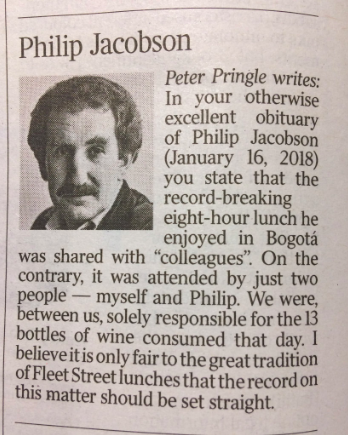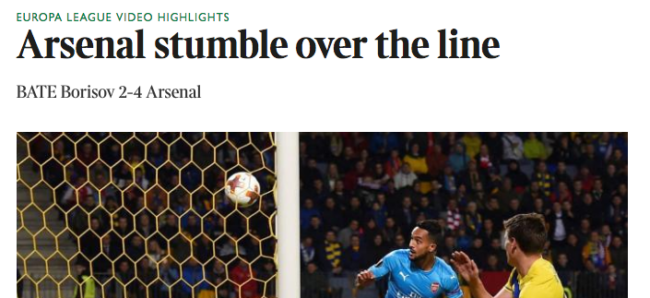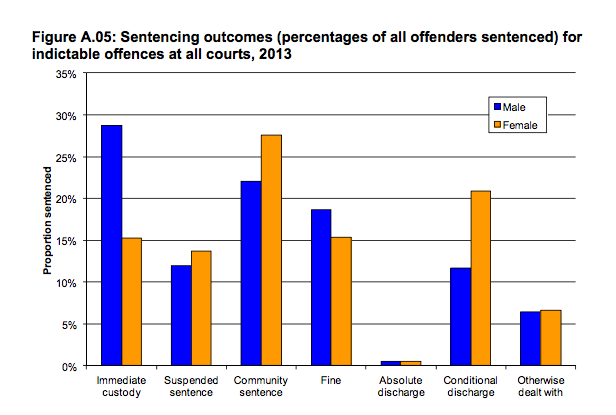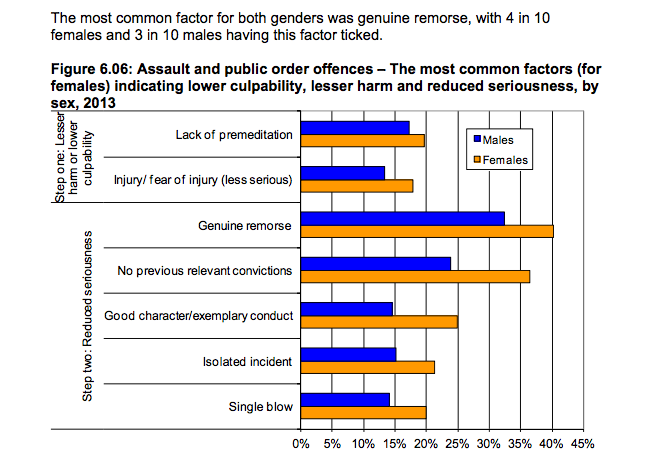Broadsheets Category
Top news from The Times, Daily Telegraph, The Indepedent and The Guardian newspapers
Regret the error: a wet lunch in Bogata
In the Times, an error is corrected in Philip Jacobson’s obituary:
Posted: 2nd, February 2018 | In: Broadsheets | 0 Comments
Well-paid BBC women are not thick as mince Grid Girl women
Spot the differences between the “BBC women on the march” for equal pay and ‘Grid Girls’ women being told they can’t work at Formula One events. Clue: age and class.
First up, the women who know what’s best for themselves and all women. The women taking a stand for equal rights, more money, opportunity and the sisterhood:
The women told they don’t know what’s best for themselves and who don’t know their own minds, being presumably too thick and infected by misogyny to earn an honest living of their choosing. Thankfully, more intelligent and higher ranking women are here to lend these losers a steer.
And then this, in which the female expert in all things female schools two grown women no longer working the darts circuit in the right and wrong way to dress, earn money and conduct themselves. (Neither group is from the 70s – that’s the 1970s for the ‘babes’ and the 1870s for the bluestocking.)
Posted: 1st, February 2018 | In: Broadsheets, News, Sports, Tabloids, TV & Radio | 0 Comments
Wenger watch: Arsenal manger swore at Chelsea player and never flinched
How did Arsene Wenger find life sat in the Chelsea press box for Arsenal’s League Cup match semi-final tie? Well, last time we discovered that he has a huge garden:
A year ago, when he was also serving a touchline ban, Wenger crept to his seat beside the corporate area in the East Stand at Stamford Bridge and was welcomed with a handshake by an Arsenal supporter.
“I said, ‘Good afternoon’ and he replied, ‘I’m your gardener at your house’,” Wenger said. “I didn’t even know him. I do have a big garden.”
And this time, what did we learn?
Here’s Jeremy Wilson in the Daily Telegraph:
Spending 90 minutes literally just a few feet from Wenger ensured a fascinating insight. Not for anything he said, but simply the magnified perspective provided by his body language. We hear so often of how football managers live every moment of a match that we become almost immune to the draining reality of that statement. Yet to see Wenger fidgeting with each pass, almost straining to make every tackle and, even surrounded by media, still letting out the occasional shout of encouragement or kick of frustration was to feel just how much it all means.
Phil McNulty was there for the BBC:
Wenger remained relatively calm, even when Lacazette wasted a presentable first-half chance, only rising from his seat once during the game when Welbeck was penalised for a foul on Moses, but it was also easy to detect the strains and stresses.
He banged the table in front of him when Granit Xhaka committed a foul against Eden Hazard, shifted constantly in his seat, throwing back his head in frustration when opportunities came and went, such as Lacazette getting carelessly caught offside and when a promising free-kick position was wasted.
The Islington Gazette:
“I was two rows down so I couldn’t hear what he was saying, but colleagues reported him kicking the backs of their chairs and using the odd swear word, especially when possession was lost or the ball hoofed into the air.
“Whatever you think of him you simply can’t deny his passion.”
Jack Polden in the Mirror:
Commenting on referee Martin Atkinson blowing up for a foul on the Spaniard, Wenger shouted: “Every time Alvaro Morata goes down it’s a f****** free-kick.”
Gary Jacobs dedicates an entire column to Wenger Watch. Highlights include:
Wenger gently leans back in his seat, as Arsenal look more comfortable…
Wenger’s presence is noticed by Chelsea fans to his left. They stand, thrust their arms towards him and chant, “We want you to stay.” There is no response…
Jack Wilshere is injured — again. Wenger never flinches…
Such are the facts.
Posted: 11th, January 2018 | In: Arsenal, Broadsheets, Chelsea, News, Sports, Tabloids | 2 Comments
When David Hasselhoff didn’t see Stevie Wonder
David Hasselhoff is talking with the Sunday Times:
I live in Calabasas, outside Los Angeles. I can get to the beach in 18 minutes. It’s more laid-back than the rat race of LA — I can breathe out here. Stevie Wonder lives up the hill, but I’ve never seen him.
Anyone…? Anyone?
Posted: 11th, January 2018 | In: Broadsheets, Celebrities | 0 Comments
Arsenal balls: Arteta invests in a watch to replace Wenger
Arsenal manager Arsene Wenger says he always sees out his contracts. But the BBC says the Frenchman “could cut short his latest contract and move into the boardroom in the summer”. The source for this speculation is the Mirror, which tells readers:
Arsenal’s Arsene Wenger could quit as manager THIS summer — and is eyeing Mikel Arteta as hand-picked successor
Well, he could. But surely the Mirror’s job is to tell us if he will? Right now there is nothing to say that Wenger will leave Arsenal this summer. And it’s not as if the Mirror has a faultless track record is saying what Wenger’s planning:
As for Arteta taking the role, a man who played for the Gunners but has never managed a club:
One of the names in the frame is former Gunner Mikel Arteta, who is impressing as a coach alongside Pep Guardiola at Manchester City.
Arteta certainly left a lasting impression with Arsenal chief executive Ivan Gazidis, using some of the money raised in club fines to buy the American a prestigious watch.
Eh?
As official collector of the money from players’ misdemeanours, the ‘present’ came as a surprise to some of Arteta’s team-mates.
But Arteta’s organisational skills on and off the training ground have impressed Wenger as he contemplates his future.
Forget Fergie time, this is Arteta time. The Mirror’s seems to be to show that Arteta is good with money. And because this is the modern media in which no scoop, however shallow, can pass unrepeated by rivals, the Sun reads the Mirror’s non-story and thunders:
QUICK TURNAROUND – Arsene Wenger ready to quit Arsenal and leave Manchester City coach Mikel Arteta in charge at the Emirates
Form something that “could” happen to Wenger being “ready ” to leave all in a morning. The paper looks at Arteta’s watch:
And the retired playmaker apparently impressed Arsenal chief executive Ivan Gazidis by buying him a posh watch during his time as Gunners bursar.
Arteta was in charge of collecting fines at Arsenal and he put the money toward a watch for Gazidis – to the surprise of his team-mates.
Anyone know any facts about this watch, which is quickly passing into folklore?
Posted: 7th, January 2018 | In: Arsenal, Broadsheets, Sports, Tabloids | 0 Comments
Arsenal balls: Sanchez agreed a new contract last December
Time for Arsenal to burn their bridges with Alexis Sanchez and kick out the sulky forward.
News is that the Chile international wanted to stay at Arsenal, allegedly shaking hands on a new deal last December.
Everything was agreed. But before Arsenal’s dithering board got any contract signed, the club were demolished 10-2 over two Champions’ League matches by a no-more-than-decent Bayern Munich side in March. Sanchez realised Arsenal were rubbish.
His future lay at Manchester City. They bid £60m, which Arsenal, in thrall to a palsied management structure of limited ambitions for anything other than routine dividends, rejected. Now they’ve got a misfiring player on huge wages. The only way to get something out of the situation is to push Sanchez out this January before he can leave for free at the season’s end.
Cue, then, the paper talk that he reneged on an agreement to remain at the club. Boo! Get him out!
Posted: 23rd, December 2017 | In: Arsenal, Back pages, Broadsheets, Sports | 0 Comments
Damian Green: flagrant abuse is what we love best
The Daily Damian: a look at Damian Green in the newspapers. The story so far: the Deputy PM is accused of having porn on his PC and chatting up a younger woman, whose knee she says he touched. The Cabinet Office is investigating. Damian Green say he’s innocent. Now read on…
The Sun (page 6) says Education Secretary Justine Greening “all but called for him to be sacked”. Greening told BBC viewers to Andrew Marr’s Sunday morning show that “most employers” would think it unacceptable to watch porn at work. On the other side (ITV) was Jeremy Hunt, the Health Secretary, telling everyone that he trusts Damian Green and “I believe what he says”.
On Page 10, Trevor Kavanagh says the story is based on a “politically motivated vendetta” against Green by two “bitter” former police officers, Bob Quick and “co-conspirator” Neil Lewis. We learn that Quick “led the scandalous raid” on Green’s office in 2008 over alleged leaks from the Home Office. Quick “seized the computers. Lewis fund the porn.” And then comes the worrying bit: “thousands of perfectly legal images were copied – against orders – and squirrelled away by Lewis for future use.” Kavanagh alleges it’s part of moves to get back at Theresa May for threatening to “smash their Mafia-style trade union”.
Over in the Mirror (page2 ), Justine Greening is telling Green to “fall on your sword”. Which isn’t a euphemism for masturbation, rather a euphemism for career suicide, or maybe actual suicide. On page 8, Kevin Maguire wonders if the Tories would back an “ordinary worker” – are MPs made extraordinary in anything but the glorious building they occupy? – “if police found thousands of indecent images on his or her desktop.” Dunno. Maybe police should all check their PCs and let us know what occurs?
And how is watching porn on your PC any different from watching porn in a magazine or newspaper, say, perhaps one that on Page 41 offers readers the chance to call premium-rate phone numbers and get some “X-RATED CHEAP CHAT” from “18-94 years olds” and “REAL HOUSEWIVES”? The Mirror does. And it offers no warning against doing so whilst at work, nor displaying the porny images that go with the adverts lest it offend workmates and paymasters.
The Mail (pages 6 and 7), says Lewis “could be prosecuted – as watchdog accuses him of ‘flagrant violation of the public’s trust in police.” New Met commissioner Cressida Dick says the force is thinking about investigating Lewis. Dick, you will recall, was in charge when armed police shot dead innocent Jean Charles de Menezes as he waited for a train on the London Underground. No police employee was disciplined for that.
Speaking on BBC Radio London today, Dick said: “All police officers know very well that they have a duty of confidentiality, a duty to protect personal information. That duty in my view clearly endures after you leave the service. And so it is my view that what they have done based on my understanding of what they’re saying… what they have done is wrong, and I condemn it.”
We also hear in the Mail from Eleanor Laing, who says deputy speaker of the Commons, who says in a letter dated November 14:
A member of my parliamentary staff has told me that, several years ago, before we had effective screening of our parliamentary computers, she used to find pornographic images on her computer every morning when she switched it on…
She was certainly not accessing pornographic sites deliberately or even accidentally. The material was just there on her computer every day. She simply deleted it. This happened before 2010.Thus, it would appear that material found in the parliamentary computer system can be proved to have been put there by some other means than by the deliberate actions of the person operating the computer.
Lax security in parliament. Who knew?
Over in the Guardian, a columnist thunders: “!If Damian Green harassed a woman or lied, he must go.” Yeah. If. But do consider it for as long as it takes to read 500-odd words about today’s burning issue.
In other news: I took up porn to help me stop smoking, says man looking for five-minute work break.
Posted: 4th, December 2017 | In: Broadsheets, News, Politicians, Tabloids | 0 Comments
Damian Green, Jacqui Smith and watching porn on The Job
Who do the police work for? Asking because Cabinet Office Minister Damian Green, effectively Prime Minister Theresa May’s deputy, allegedly had porn on his computer when police raided his office in 2008. Neil Lewis, a former Scotland Yard detective, tells media he found “thousands” of thumbnails of dirty photos in Green’s computer’s browser cache. There was, says Lewis, “no doubt whatsoever” that the porn was accessed by Green.
Green says if there was any porn found, it wasn’t his.
Which leads us to wonder: why would Lewis allegedly keep personal copies of potentially damaging information on an elected MP and cabinet minister? If the information was obtained during paid work hours, why has he got it out of the office? Or is this just about two men allegedly sharing the same taste in smut, storing thumbnails being the modern take on finding a jazz mag in a hedge?
Lewis told the BBC:
“The computer was in Mr Green’s office on his desk, logged in, you know, his account, his name. In between browsing pornography he was sending emails from his account, his personal account, reading documents, writing documents and it was just impossible it was exclusive and extensive that, you know, it was ridiculous to suggest that anybody else could have done it.”
A spokesman for Mr Green tells us, precisely:
“From the outset he has been very clear that he never watched or downloaded pornography on the computers seized from his office.”
The police add in a statement:
“Confidential information gathered during a police inquiry should not be made public. The appropriate course of action is to co-operate privately with the Cabinet Office inquiry as the Metropolitan Police Service has done.”
Jim Waterson, of Buzzfeed News, tweeted:
“The headline on this Damian Green story should be ‘The police don’t delete your data when ordered to do so and are liable to leak details of the legal porn they found in order to embarrass you’.”
And what about the quality of that porn? Thumbnail photos? Is looking at small aides to masturbation likely to make you go blind faster that the A4 shots?
Matthew Parris in the Times:
Be clear: all sides agree that none of the alleged material was illegal, and his accusers have withdrawn any claim it was “extreme”. Nobody is suggesting this was anything other than mainstream internet porn of the kind millions of men, probably most men, many journalists and many policemen, have accessed. There is a debate about pornography and the law but the fact remains: if Mr Green did what the police alleged (and he denies) he would have broken no law. Yet, now he is wounded, they close in on him.
The Register adds:
Lewis’s claims are also subtly different from other police leaks aimed at Green: a month ago Bob Quick, a disgraced former assistant commissioner of the Met, described Green as having “extreme” porn – which is illegal to own. Quick was sacked from the Met for letting press photographers see details of a secret briefing document as he walked into Downing Street, though he was also head of the police inquiry which decided to arrest Green.
And the backstory?
Green is under investigation by Parliamentary authorities for allegedly inappropriate behaviour with a young Conservative activist. He denies any wrongdoing.
The Guardian has more backgroundbin a story entitled “Damian Green and the decade-long feud with ex-Met officer Bob Quick”:
The decade-long feud between Damian Green and Bob Quick, now coming to a head with a Cabinet Office investigation into Green, can be traced back to a day in 2006 when a young civil servant working in Jacqui Smith’s Home Office was allegedly told by the now first secretary of state to get “as much dirt on the Labour party, the Labour government as possible”…
The Jacqui Smith who in 2011 was reported on the BBC thus:
Jacqui Smith has revealed she felt “frozen rather than angry” when told her husband had entered a parliamentary expenses claim for pornographic films. The former Labour home secretary told Radio Times she felt “protective” towards Richard Timney, despite the episode ending her political career.
Ms Smith said she had not gone “through the expense form closely enough”…
Despite outlawing violent pornography while she was home secretary, she said she was “shocked” at the amount of hardcore material still available on the internet. Asked if her husband had known about this, he might not have chosen pay-per-view films, she replied: “Yes, that’s what my 17-year-old son said: ‘Dad, haven’t you heard of the internet?'”
Back to the Guardian:
Over the course of the next two years Galley got a job in the home secretary’s private office and passed at least 31 separate documents, some classified restricted, from the heart of Smith’s department including from her private office’s inbox and private outer office safe.
Green made maximum use of the documents to secure damaging headlines in the Daily Mail, Sunday Telegraph and other papers…
In the Mail, any word on that?
Damian Green and Bob Quick crossed swords in 2008 when the Met assistant commissioner took dramatic action in an inquiry into leaks from the force. Mr Quick decided to arrest then then shadow immigration minister.
The Tory MP was held for nine hours while his Commons office, two homes and constituency office, were searched and computers removed by counter-terrorism officers.The episode sparked a huge inquest at the Commons into whether parliamentary privilege should have protected the material held by an MP.
Adding:
In the ensuing political storm, it emerged Mr Quick’s wife was running a car hire firm from their home and details of their address were published on a website.
Or as the Guardian reports:
Three weeks later Quick, in a move he later regretted, publicly accused the Tories “and their press friends” of “acting in a wholly corrupt way” to try to undermine his investigation into Green.
What had provoked his anger was a Mail on Sunday article detailing a wedding chauffeur business run by his wife, Judith, from the family home.
As newspapers score points by omission and inclusion, Parris has the last word:
What Damian Green was alleged to have watched might be thought disgusting, but what two former Met officers have been up to is little short of sinister. Disgust can rule the headlines and may win the day, but former police officers are trying to destroy a senior minister with whom they have clashed. This is London, not Chicago. Parliamentarians, in retreat for a decade now, should unite to push back.
One day they’ll let robots run us…
Posted: 2nd, December 2017 | In: Broadsheets, News, Tabloids | 0 Comments
Bournemouth v Harry Redknapp in new flats row
Do we like Harry Redknapp the property developer more than Harry Redknapp the wheeler dealing football manager? The Guardian is upset by the man who once upon a time looked a shoo-in to be England manager. “Harry Redknapp ‘will make 30 people homeless’ with flats plan,” runs the headline. Those inverted commas should tell you something about plans to replace the unlisted Victorian Belgravia Hotel in Bournemouth with flats. The hotel, says the local Echo newspaper, is divided into 24 bedsits.
Plans by the football manager Harry Redknapp to demolish a former hotel and replace it with “posh” apartments would result in 30 people being made homeless, including several with disabilities, cancer sufferers, ex-offenders and other vulnerable individuals, according to opponents to the scheme.
What a basta…
Clifford Henley, one of the residents, claimed Redknapp… stood to make a fortune from the 21 flats and three mews houses, adding: “To be chucking 30 blokes on the streets with no consideration whatsoever – it’s brutal.”
Class war? “It’s walking over poor people,” says Henley. and then comes a right to reply. A spokesman for Redknapp’s company says the proposed homes range in price from £160,000 to £300,000.
In February 2017, Bournemouth councillors rejected Redknapp’s plans to replace the Belgravia with a four-storey block of 32 flats. East Cliff Conservation Area board chairman and East Cliff ward councillor David Kelsey opined: “We can’t just pull a building down because we don’t like the people living in it, we all have a right to live somewhere. I am fed up of developers just pulling buildings down for the sake of pulling them down.”
If it’s about housing people, isn’t the plan an improvement, offering space for more people than the current situation? You might suppose not because the Guardian has also delivered such stories as: “The truth about property developers: how they are exploiting planning authorities and ruining our cities” and “Virtual realty: can a computer game turn you into an ‘evil’ property developer?”
The Guardian ends by telling readers: ‘…in an interview last month, another footballing legend, the former England and Arsenal goalkeeper David Seaman, said that owning too many properties was “just greedy and expensive”.’
Any journalists own more than one home? Or is it just footballers whose morals get examined?
Posted: 2nd, December 2017 | In: Broadsheets, News | 0 Comments
The Daily Mail versus The Guardian: wrapping Nazis and eugenics in Paperchase guff
Have you boycotted Paperchase, sellers of printed stationery – yep, people really do still send letters (though not to Daily Mail readers who communicate by holding their noses and yelling into the wind)? Hope not. Paperchase tried its best to shine a light into society’s darkest recess. It reached out to the Daily Mail’s Untermensch readership, hoping that in offering them two free rolls of Christmas wrapping paper, they’d be put on the path to decency.
But Stop Funding Hate thought Mail readers beyond salvation and bombarded Paperchase’s social media account with complaints. Paperchase didn’t rescind the offer, but did vow never again to reach down into the sewer. It was “truly sorry”. Some people are just not worth the effort. Wrapping paper is a not a right; it’s a moral choice. The tree gods gladly give up their own to wrap useful gifts like photos of Jeremy Corbyn, DVDs of The 100 Best Silences and the Pop-Up Book of Safe Spaces. But save for the odd Japanese knot weed and leylandii, no vegetation wants to be seen dead around the kind of stuff Mail readers buy at Christmas – jackboots, flaming torches and Jeremy Clarkson audio tapes.
Sarah Baxter tells Times readers Stop Funding Hate is interested in muzzling the Press. The group’s founder, Richard Wilson, ‘admitted on Newsnight that “the end point for us is a media that does the job we all want it to”.’ Which is? Baxter says it’s “suppressing the array of opinion reflected in the British press… Stop Funding Hate, however, has morphed into an arrogant group of hate-mongering activists who are outraged about an ever-expanding range of subjects”.
The idea is simple: starve the publication you don’t like of advertising money and watch it die. If this also deprives thick-as-custard people of reading the tabloids, all to the good. If those mouth-breathers can’t be banned from sharing views of the right-minded, their reading material must be censored. The caring Left knows best.
The Advertising Association is concerned, stating: “The UK has a free press and advertising plays a vital role in funding that. Pressure group lobbying of this kind has negative implications for our press freedom.” Advertising body Isba, warns: “We shouldn’t take for granted the freedom of the press.”
Over in the Guardian, which would surely be the only newspaper on the bottom shelf when the anti-haters have won the day, Peter Peston thunders:
Stop Funding Hate may legitimately urge Mail readers to quit (and Mail readers may, equally legitimately, examine the causes SFH espouses and make up their own minds). But trolling rather nervous companies such as Paperchase isn’t legitimate. It’s the thin end of a dangerous wedge – with no winners in sight, from left or right.
As last week’s Ipso complaints ruling on Trevor Kavanagh’s “The Muslim Problem” column for the Sun mordantly observes: “There is no clause in the editors’ code which prohibits publication of offensive content”. Nor should there be.
In the same paper, Stewart Lee writes beneath the headline: “My futile attempt to sell satire to the Daily Mail.” Well, the paper does employ the sublime Craig Brown, so maybe he’s enough? Guardian readers are told:
Usually, I am the sort of person who thinks that anyone who has ever worked for the Daily Mail is worse than Adolf Hitler, even the temps and the tea lady. And I’m not alone. So disgusted are youth voters by the repellent newspaper, it’s now clear that the Daily Mail’s increasingly hysterical attacks on Jeremy Corbyn, the coddled egg of British politics, may even have helped secure his triumphant loss in the last general election.
Worse than Hitler? Satire, right? Phew! And people not voting for Corbyn because the Mail told them, too? I thought it was about anti-Semitism. But, then, I’ve not been keeping up with the Guardian’s news on Jews and Jezza’ Labour Party, not since one of their columnists wrote in the Guardian: “I have developed a habit when confronted by letters to the editor in support of the Israeli government to look at the signature to see if the writer has a Jewish name. If so, I tend not to read it.”
I didn’t call for a boycott. And the sport pages are good. Boycotts are, after all, for censors and Nazis.
Lee also turns to the subject of Nazis, riffing on when the Mail hailed the blackshirts.
And a sepia-toned card of the first Viscount Rothermere, the paper’s 1930s proprietor, declares, in Daily Mail font, “I urge all British young men and women to study the Nazi regime in Germany. There is a clamorous campaign of denunciation against ‘Nazi atrocities’ which consist merely of a few isolated acts of violence, but which have been generalised, multiplied and exaggerated to give the impression that Nazi rule is a bloodthirsty tyranny. Congratulations on passing your driving test.”
Haha. Got one about the Guardian opposing the creation of the National Health Service as it feared the state provision of healthcare would “eliminate selective elimination”?
This is not to defend the Mail. It’s to highlight how censorship is formed by bigotry.
Owen Jones disagrees. He writes in the Guardian: “Paperchase rejecting the Daily Mail is another victory against hatred.” No, he’s not being ironic.
This paper, whose less than glorious history includes cheerleading for the Nazis and Oswald Mosley’s blackshirts, is one of the most vindictive bullies in Britain.
And the Guardian? The Spectator tells us that not all leading figures in the Left, including eugenicist George Bernard Shaw, minded tyranny. ( In March 1933 Shaw was a co-signatory to a letter in The Manchester Guardian protesting at the continuing misrepresentation of Soviet achievements: “No lie is too fantastic, no slander is too stale … for employment by the more reckless elements of the British press.”)
Malcolm Muggeridge, was initially supportive of the Soviet regime. But then he went to Moscow as a correspondent for the Manchester Guardian and learned about the Ukrainian famine. The Guardian censored his reports. The left was divided by the atrocities of the Soviet Union into honest, moral people and those who turned a blind eye.
Is this a row between newspapers: the Guardian in need of the Mail to showcase what it is not; the Mail and right-wing Press, doing much the same? The difference is, though, that only one side supports censorship.
Posted: 26th, November 2017 | In: Broadsheets, Key Posts, News, Tabloids, The Consumer | 0 Comments
Lily Madigan: Labour, women and a terf war
Lily Madigan was once Liam Madigan. Lily is now the women’s officer for the Labour Party branch in Rochester and Strood in Kent. She’s been in the news before. In October 2016, “Brave Lily” (Kent Online) received an apology from St Simon Stock Catholic School, Maidstone, for sending her home for “wearing the wrong uniform” and “preventing her from using the girls’ toilets and changing rooms”.
Said Lily, who threatened to sue the school: “I decided to come in dressed in the girls’ dress code, which basically meant I was wearing a top instead of a shirt. It made me feel so happy, until I was sent home.”
Lily, 19, was born male but identifies as a woman. The Times explains how her new job works:
Labour Party rules state that “the women’s officer must be a woman”.
Why? Can only women understand and represent women? Do you need to have been a girl to know womanhood?
Ms Madigan said it was “misguided” to suggest she could not fulfil the duties of the role, simply because she was born male.
That part at least sounds right.
Teresa Murray, Medway councillor and vice-chairwoman of the executive committee of Rochester and Strood CLP, says “Lily will have to work very hard to convince other people that her very presence there is not going to undermine them”. Adding: “Someone who is an accountant would probably make a better treasurer initially, but that doesn’t mean we should only give the role to an accountant.”
Accountants are born for the job, of course. It’s not something you can learn. It’s something in you. It defines you. You’re just built that way. Accounting is in the genes. But that’s not to say others don’t think accountancy more representative of their true selves. If they want to dress in grey suits, part their hair to the side and carry a briefcase, then that is their right.
Ella Whelan has more background:
Madigan hit the headlines after arguing that Anne Ruzylo, a Labour Party women’s officer in a different constituency, should be sacked for being ‘transphobic’. Ruzylo, a lesbian, feminist and trade unionist, had criticised the sanctification of the trans movement. For this, she was labelled a ‘terf’ (trans exclusionary radical feminist) and was harassed by transgender activists online. Eventually, the executive committee of Ruzylo’s local Labour branch resigned in protest at her mistreatment.
“I feel quite violated,” Ms Ruzylo told The Times. “I’ve worked as a trade unionist for 30 years and I’ve never been shut down in this way. It’s disgusting… Debate is not hate. If we can’t talk about gender laws and get shut down on that, what’s next? What else are we not allowed to talk about? We’re going back to the days of McCarthyism. It is disgraceful.”
“I don’t care if I get called a transphobe, says Whelan adds, “Lily Madigan is not a woman. At 19, he is barely even a man.”
Ouch.
One thing is certain: if you cannot express yourself, we are all the worse off for it.
The transgender teenager at the centre of a Labour Party row has applied for the Jo Cox Women in Leadership programme, angering and dismaying party members…
The leadership programme was started last year in memory of the murdered MP Jo Cox, with the specific aim of encouraging more women into politics.
Critics say that it defies the whole point of the scheme, which attracted more than 1,000 applications for 57 places in its first year, to include people who are biologically male or who have lived part of their lives as men.
What price equality?
“Women in the party are fuming,” said one Momentum activist who accused the leadership of quietly redefining the meaning of “woman” without consulting the membership.
Good grief.
Posted: 25th, November 2017 | In: Broadsheets, News, Politicians | 0 Comments
The pay gap for women and trans is about parenthood not gender
Trans issues are to the fore. The Government is looking at altering the Gender Recognition Act 2004 (GRA), which would permit trans people to change their legal gender without a medical process. Right now the rules are that a diagnosis of gender dysphoria is needed to begin the process. People seeking to change gender have to submit evidence that they have been in transition for at least two years.
It’s not about society, manhood and womanhood. It’s about the individual and individual wellbeing. The BBC’s Jenni Murray got into bother by saying that trans women were not “real women”. Feeling yourself to be women is not the same as being one, she opined. Countering that is Shon Fay, who writes beneath the Guardian headline: “Trans women need access to rape and domestic violence services. Here’s why – All women face similar dangers, whether trans or not, and it’s distressing that some people seek to drive a wedge between our rights.”
Growing up being perceived by others as a feminine gay boy certainly wasn’t easy, but once I transitioned, in my 20s, things radically changed. The flashes of misogyny I witnessed when I was younger are now, as they are for most women, a daily reality. Some of this is banal – like the men on dating websites who call me a “stuck-up bitch” or a “desperate slag” when I turn them down. Some is more structural: when I get into my 30s, the gender pay gap will widen and I will find myself on the “wrong” side of it.
Maybe not.
Vox reported:
The data tells us that this can’t be the entire story. It can’t explain why the wage gap is so much bigger for those with kids than those without. One 2015 study found that childless, unmarried women earn 96 cents for every dollar a man earns.
Which man? Because dad get more:
One of the worst career moves a woman can make is to have children. Mothers are less likely to be hired for jobs, to be perceived as competent at work or to be paid as much as their male colleagues with the same qualifications.
For men, meanwhile, having a child is good for their careers. They are more likely to be hired than childless men, and tend to be paid more after they have children.
These differences persist even after controlling for factors like the hours people work, the types of jobs they choose and the salaries of their spouses. So the disparity is not because mothers actually become less productive employees and fathers work harder when they become parents — but because employers expect them to.
Economist Claudia Goldin suggests more:
Many companies still richly reward people who are available and work long, continuous hours, Goldin says. They give premium pay to certain key players – mostly men who don’t take time off for children or aging relatives. So women or men who need flexible schedules obtain them “at a high price, particularly in the corporate, finance and legal worlds,” Goldin writes in her paper. Technology and science fields are better off in pay equity, as are certain health care careers. … “It isn’t, quote, a women’s issue,” says Goldin in an interview with Quartz. The pay disparity shows up equally when male MBAs need reduced schedules or time off for personal or family needs.
And then we can talk about class…
Posted: 22nd, November 2017 | In: Broadsheets, Money | 0 Comments
The Guardian makes cracking error in dyslexia story
Dyslexia news in the Guardian, where the paper infamous for its typos relays news that dyslexia may be caused by the light-receptor cells in “the human eye”. Scientists noticed a difference between the arrangement of cones between the eyes of dyslexic and non-dyslexic people. Might it be that vision is linked to dyslexia?
In non-dyslexic people, the blue cone-free spot in one eye – the dominant one, was round and in the other eye unevenly shaped. In dyslexic people, both eyes have the same, round spot.
“The lack of asymmetry might be the biological and anatomical basis of reading and spelling disabilities,” said the study’s authors.
Interesting stuff. But dyslexics and non dyslexics alike can then work out what the hell the Guardian means when in its rehashed press releases, the news becomes:
Transcribed:
About 700 million people worldwide are known to have from dyslexia – about one in 10 of the global population.
There’s no helping some people…
Posted: 15th, November 2017 | In: Broadsheets, News | 0 Comments
Taxies levied on turnover will turn the lights off
Sky News economics editor Ed Conway has an idea about how the likes of Apple, Google and Facebook can be taxed when they operate a slippery system of moving services around the world and as a result pay about £3.45 in corporation tax on billions of pounds in profits. He writes in the Times:
The way we tax companies needs to be turned on its head. Abolish taxes based on a company’s profits and replace them with taxes levied on their turnover.
In which case, good luck getting gas and oil out of the ground – and investing in making things more efficient:
Might be better if governments invested in their own nascent unicorns and beat the all-conquering US tech giants fair and square.
Spotter: Forbes
Posted: 13th, November 2017 | In: Broadsheets, Money | 0 Comments
Brexit Balls: Irish cheese panic
More fine anti-Brexit work in the The Guardian, where news is that people who eat non-organic butter and hum-drum Irish cheddar are going to be worst off once the country quits the EU:
Leaving the customs union in a hard Brexit scenario could lead to the price of meat doubling and the price of dairy, half of which is imported, rising by up to 50%.
How so?
A block of cheddar imported from Ireland that costs £1 now will cost £1.41 under World Trade Organisation rules, with Ireland being a major producer of cheddar. This would prompt a vicious economical cycle and a period of “runaway” food price hikes, he warned.
The quoted “he” is Gabriel D’Arcy, chief executive of dairy producers LacPatrick in Strabane in Northern Ireland. In May Mr D’Arcy said LacPatrick “had seen a 25pc surge in its sales into the British market in the wake of Brexit, due to its presence in Northern Ireland”. Not all doom and gloom, then.
And as for the Guardian’s words on WTO, well, the quoted price hike represents the maximum import tariffs, so-called ‘ceiling rates’ on ‘bound rates’ . You can charge less through ‘applied rates’. The Government could go further and charge no tariffs (aka tax), and make the populace’ richer’ by allowing them to keep more cash in their pockets by way of cheaper cheese.
No need to panic, then, and dash out to buy lots of Irish cheese. Guardian readers, of course, can stick with their runny brie.
Posted: 13th, November 2017 | In: Broadsheets, Money, News | 0 Comments
Sayfullo Saipov: confessions of a lone wolf
 Sayfullo Saipov, 29, the Uzbek immigrant accused of murdering at least eight people in New York, is recovering from surgery after being shot in the abdomen by a New York City police officer.
Sayfullo Saipov, 29, the Uzbek immigrant accused of murdering at least eight people in New York, is recovering from surgery after being shot in the abdomen by a New York City police officer.
What do we know of him? Well, not much. Saipov arrived in the US back in 2010. He worked as an Uber driver.
But the Telegraph knows lots:
Eight people died and 11 injured in the worst terror attack on New York since September 11, 2001 as a lone wolf extremist screaming “Allahu Akbar” used a pick-up truck to mow down cyclists along a bike path on Halloween.
He did this alone? Sayfullo Saipov has no connection with any organised group, says the paper. He’s got the jihadi slogans, jihadi mode of attack and the jihadi beard, a panoply of symbols beneath which his violent urges achieve a narrative.
His is the face of a leaderless rejection of Western society, a fearful, murderous malcontent. Can we find some comfort in international terrorism manifest in an ordinary, unexceptional man with a limited access to weapons, albeit one who is capable of committing a brutal act of mass murder?
If we call the suspect a “lone wolf”, don’t we ignore the causes that led to him wilfully killing people, negating debate and investigation by adapting the crime to fit out own prejudices and anxieties?
The terrorists can’t dictate our reaction to their actions. The attack on innocent people going about their day under a clear New York sky can be meaningless, signifying something much less than a looming war.
Posted: 1st, November 2017 | In: Broadsheets, News | 0 Comments
Graphene rods to harness lightning
Life mirrors Back to The Future in the Times, where Sandy Chen has a dream. First you build a massive graphene lightning rod that reaches miles into the skies. Then you harness nature’s explosion.
Nothing all that new in the idea. And why it’s in the paper is unclear. The story reads a little like an advert for Chen’s company – and likening him to Elon Musk, the PayPal billionaire who has a dream for electric transport, is ambitious. But that’s not to say lightning power is uninteresting:
Of course, harnessing the power of an H-bomb is easier said than done, and scientists have been scratching their heads for decades over the conundrum of capturing and storing the five billion joules of energy that a bolt can transmit to Earth in a matter of microseconds. Chen admits that “it is really farfetched, but if we can develop it, that would just be pretty cool”.
It’s hot:
In the UK we experience relatively few thunderstorms each year: in England thunder occurs on average 11 days per year, with even fewer in Scotland and Wales. Even during a thunderstorm it’s incredibly difficult to predict when and where lightning will strike.
Assuming that you are lucky and get a lightning bolt to hit your conductor, there would be major difficulties in storing the energy and then converting it to alternating current so it can run your appliances. In addition, any solution to these problems would need to be able to withstand the enormous surges in energy generated by each strike.
Finally, much of the lightning bolt’s energy goes into heating the surrounding air to temperatures greater than the surface of the Sun. So even if you managed to overcome the problems of collecting, storing and converting the energy from the lightning to make it useful, you would still only be harnessing a small proportion of the lightning bolt’s power.
Good idea.
Posted: 1st, November 2017 | In: Broadsheets, Technology | 0 Comments
Bananarama are not a patch on the ‘original girl bands’
The Telegraph has news for fans of the world’s “original girl band”. You know…Bananarama.
Pretty good, if not exactly the Hamilton Sisters and Fordyce, aka The 3 X Sisters, seen below in the 1935 vintage:
And what of the Chordettes, the Fontane Sisters, the McGuire Sisters, the DeCastro Sisters and The Supremes? And…
Well, yeah…
But my pick… Take it away, The Ronettes!
And…
Posted: 22nd, October 2017 | In: Broadsheets, Celebrities, Music | 0 Comments
The charity game: when sex with clients is ok
The charity business continues of amaze. The Sunday Times looks at the Leeds-based Yorkshire Mesmac charity, which, says the headline, “allows sex with clients”. And who are these clients at its centres in Leeds, York, North Yorkshire, Bradford, Wakefield, Rotherham and Hull?
A charity for child abuse victims, sex workers and gay men given more than £2m by the government, councils and police has told its staff they are allowed to have “sexual relationships” with the often vulnerable people they meet through their work.
Ah.
The organisation, based in Leeds, is being investigated by the city’s child safeguarding board after The Sunday Times obtained a copy of its “workers’ conduct policy” which states: “Sexual relationships are acceptable with service users initially met during work time”. Most health and social work organisations ban professionals from establishing relationships with patients and clients.
To which the Guardian adds, so as not to create confusion:
The rules do not relate to the charity’s work with children.
Mesmac’s chief executive, Tom Doyle, gets the right to reply:
“We understand that, viewed out of context of Yorkshire Mesmac’s suite of policies including safeguarding of children and of adults at risk, there is a possibility that this code of conduct could be misunderstood.”
The policy was now being redrafted.
Spotter: Times
Posted: 22nd, October 2017 | In: Broadsheets, Money, Politicians | 0 Comments
Lysette Anthony and Harvey Weinstein in Trial By Media
Harvey Weinstein, the Hollywood mogul accused of multiple crimes against women, is all over the tabloids.
The Sun leads with the “3 Brit Victims”. Alleged victims, of course, a fact given credence with those inverted commas. Weinstein is deserving of a fair hearing. Innocence must always be presumed.
The pick of the alleged victims seems to be Lysette Anthony, a former model and actress, subject of the Sunday Times’ scoop: “Lysette Anthony: I answered the door. Harvey Weinstein pushed me inside and raped me in my own hallway.” That’s a headline and a half. And because it is a headline, it counts as opinion not fact.
Lysette Anthony’s allegations reach use via Charlotte Metcalf, a “close friend” of the actress. The pair went to a police station, where Anthony made her allegation. It’s serious stuff. Her words are weighty, and she should be afforded respect. The sincere hope is that the matter goes to court. Our opinions matter not.
Metcalf writes:
She was nervous but the officers were sensitive and reassuring. Afterwards I sat down with her and she told me the full story which she has agreed I should now make public.
Are we entertained yet? Stay tuned…
We hear that Lysette and Weinstein first met in New York. “Over the net few years she would have lunch with Harvey from time to time when he was in London. At that point she experienced nothing untoward: ‘The lunches were invariably in hotel suites but I felt comfortable in Harvey’s company. We had become friends.'”
And then she claims he attacked her:
“He pushed me inside and rammed me up against the coat rack in my tiny hall and started fumbling at my gown. He was trying to kiss me and shove inside me. It was disgusting.
She tried pushing him off but he was too heavy. “Finally I just gave up. At least I was able to stop him kissing me. As he ground himself against me and shoved inside me, I kept my eyes shut tight, held my breath, just let him get on with it. He came over my leg like a dog and then left. It was pathetic, revolting. I remember lying in the bath later and crying.”
Anthony says she never told the police not her agent. She claims that around a year later, she met Weinstein again. She took her out for dinner. He was “perfectly charming”. He bought her a coat on the way home. “I thought it was his unspoken way of apologising for what had happened,” says Lysette. “I assumed that was that and we went our separate ways.”
And then…?
“From this point on, if I ignored Weinstein’s calls the assistants started ringing and if I ignored them his assistants called my agent to set up a meeting. What you have to understand is that no one turned down an opportunity to meet Harvey Weinstein. No one. I’d never told my agent about the rape, so it was impossible to explain why I didn’t want to see him.
“The meetings would start with a chat in a hotel suite. The assistants would disappear and then he’d disappear and return in a robe demanding a massage. By then I’d just given up. I knew I was powerless and at least I wouldn’t have to do much. I was just a body, young flesh. It wouldn’t take long and no one knew.”
And there it is, out there in the court of public opinion, the story of the actress and her alleged rapist.
Weinstein the “sex beast”:
This has to reach court. Weinstein must have the right to defend himself. And society has the right to judge the matter. Anything less than law-based justice reduces alleged horrific crimes into a nasty form of entertainment…
Posted: 16th, October 2017 | In: Broadsheets, Celebrities, News, Tabloids | 0 Comments
Monarch: paper profits and discounts as capital for the super rich
Monarch Airlines is bust. And in the Sunday Times we get an insight into the bizarro world of the mega-mega-rich. Monarch is owned by private equity outfit Greybull.
Amid a battle for orders between Boeing and Airbus, Monarch secured a cut-price deal for 30 new planes — which later rose to 45. The market value of the aircraft was greater than Monarch’s agreed price, so creating a paper profit.
And then it got even better.
Greybull was able to persuade Boeing to release more than £100m of this trapped equity as cash, pumping it into the airline through Petrol Jersey.
Can it be that the seller gave discount as capital?
And why now did the firm bust? The Times notes:
Questions have been raised about timing. Monarch went down with £48m of cash in the bank, over which Greybull has a strong claim as primary secured creditor. Swaffield’s statement revealed that the cash pile was shrinking rapidly and would have been £20m by the end of the month. Greybull’s Marc Meyohas said the timing of the collapse “was influenced by Atol, not by us running out of cash”.
Fair enough?
“The families, Greybull, Petrol Jersey, however you want to put it, will have lost money on this deal,” said Marc Meyohas. “We are absolutely disappointed by the outcome. We do feel we have been responsible owners, but we have failed nonetheless.”
As for placing questions marks over the owners, well, is it fair to portray them as grinners, as the FT does?
Expect a lot to follow – little of which will help the poor sods now out of jobs and fretting about pensions.
Spotter: Times
Posted: 8th, October 2017 | In: Broadsheets, Money | 0 Comments
3 dead in Marseilles: ‘Allahu Akbar’ ad infinitum
Three people are dead at Marseilles’ Saint-Charles train station in France. Police shot one dead after he’d murdered the other two. The Guardian says the murderer was a “man”, an “assailant” armed with a knife, a “knifeman”. And that’s all.
“Two victims have been stabbed to death,” says regional police chief, Olivier de Mazieres on AFP.
But a clue to what the “man” might have been and why he did it comes via an unnamed French official, who tells France’s Le Monde newspaper that the killer yelled “Allahu Akbar” as he stabbed two women to death.
How relevant is that chant? It’s very relevant, reasons the Daily Mail, which unlike the BBC and Guardian makes the familiar war cry of militant Islam central to the story. “Two passengers are killed as attacker shouting ‘Allahu Akbar’ slits a woman’s throat with a butcher’s knife and stabs another at Marseille station before soldiers shoot him dead,” announces the headline.
The Mail mentions “Islamist radicals” in its story. The Guardian makes no mention of Islam whatsoever in its. Why is there such a clear difference in reporting? Why does one publication make Islam a key part of the narrative, whilst another ignores it entirely? I’d hazard a guess that it’s something to do with the uncertain, fearful censorious times we live in. Ever watchful of triggering the slack-jawed mob, the simplest fact is redacted from reports lest it foment a race riot. With free speech and free expression stymied, what should be objective – simply stating the facts – becomes confrontational and daring. Most worryingly, it leaves the facts to actual bigots who adopt the role of rebels and present themselves as brave and knowing sources of ‘truth’.
As for the police, well, the soldiers who shot the killer dead are part of Operation Sentinelle, the military operation launched after Islamists massacred so many at Charlie Hebdo magazine and a Jewish supermarket in Paris in January 2015.
Good the soldiers were there, then.
Aside from a conversation on armed police on the streets this attack invites, is there also a conversation to be had about Islamist violence? Since 2015, more than 230 people in France have been killed in Islamist attacks. Discuss.
Posted: 1st, October 2017 | In: Broadsheets, News, Tabloids | 0 Comments
Arsenal riot, stroll and stumble at BATE Borisov
Arsenal ran out pretty easy winners in their Europa League match against BATE Borisov, winning 4-2, having been 3-0 up after 25 minutes. Arsenal are the first team to beat Bate on their own patch in European competition since Barcelona defeated them in 2015 – a run of seven games.
What do the newspapers have to say about the match?
EASY!
The Daily Mail calls it an “Arsenal stroll”. The Sun agrees that it was a “stroll”. The Gunners, boasting a squad of nine players aged 20 or younger, “ran riot”. The Express saw Arsenal “picking apart the BATE defence at will”. The Daily Star says it was “stunning stuff from Arsenal”.
HARD!
The Daily Mirror says it “wasn’t an easy ride” for the Gunners in Belarus.
And the Times:
One man’s stroll is another reporter’s stumble.
Such are the facts.
Posted: 29th, September 2017 | In: Arsenal, Back pages, Broadsheets, News, Sports, Tabloids | 0 Comments
Lavinia Woodward’s case tells us nothing about race but it might expose the myth of gender equality
Afua Hirsch has something to say about Lavinia Woodward, the troubled woman guilty of attacking her boyfriend. For the crime of unlawful wounding Woodward was sentenced to 10 months’ imprisonment suspended for 18 months. Much of the narrative has focused on her intellect, which the judge praised. He told her “normally it would attract a custodial sentence, whether it is immediate or suspended”. Judge Pringle praised her “extraordinary talent” for learning and medicine – Woodward wants to be a heart surgeon – and listed “mitigating factors” in arriving at his conclusion that a period in prison would be the wrong sentence.
The Press disagreed, calling it “TOFF JUSICE” (The Sun) and reworking the judge’s comments into “Oxford student branded ‘too clever to be jailed'” (Mirror). Woodward became a talking point. So here’s Hirsch to tell Guardian readers: “The Lavinia Woodward case exposes equality before the law as a myth.”
It does? She describes Woodward as “white, and privileged”. I’d add ‘blonde’. It is surely Woodward’s blondeness that made her case front-page news.
Hirsch adds: “At the time of her attack, she was studying medicine at Christ Church college, Oxford. She had attended a prestigious international school. She could afford an excellent lawyer. She was able to demonstrate – in a language the judiciary can easily understand – her potential future contribution to society.”
Hirsch then reviews all the facts – although the judge’s full comments have not been published – adding maybe a dash of her own prejudice to the matter. “She is as deserving of a prison sentence as the young black men so often reported as being involved in stabbings,” she writes, as if all stabbings are of equal damage and all cases easily comparable.
But if it’s inconsistency we’re seeking, the key word might not be ‘white’. It might be ‘she’. In the 2013 Government report “Statistics on Women and the Criminal Justice System – A Ministry of Justice publication under Section 95 of the Criminal Justice Act 1991” we read more.
Women go to prison less often than men:
That the crime was Woodward’s first was noted by the judge, who told her: “There are many mitigating features in your case. Principally, at the age of 24 you have no previous convictions of any nature whatsoever.”
The report states:
Offending histories: Female offenders were less likely than male offenders to have any previous cautions or convictions throughout the ten years from 2003 to 2013, with a third of females and only a fifth of males being first-time offenders in 2013.
Is Woodward likely to repeat her crime?
In the most recent period (2012), males (both adults and juveniles) re-offended at a higher rate than females (27.7% compared to 18.5%), and this has not changed over the past ten years.
And what about those mitigating factors? The judge told Woodward:
“There are many mitigating features in your case. Principally, at the age of 24 you have no previous convictions of any nature whatsoever. Secondly, I find that you were genuinely remorseful following this event and, indeed, it was against your bail conditions, you contacted your partner to fully confess your guilt and your deep sorrow for what happened.
“Thirdly, whilst you are a clearly highly-intelligent individual, you had an immaturity about you which was not commensurate for someone of your age. Fourthly, as the reports from the experts make clear, you suffer from an emotionally-unstable personality disorder, a severe eating disorder and alcohol drug dependence.
“Finally, and most significantly, you have demonstrated over the last nine months that you are determined to rid yourself of your alcohol and drug addiction and have undergone extensive treatment including counselling to address the many issues that you face. In particular, you have demonstrated to me since I adjourned this matter in May a strong and unwavering determination to do so despite the enormous pressure under which you were put and which has been referred to me by your counsel.”
Says the Government:
A case with many aggravating factors is dealt with more severely than a case with a few aggravating factors. These offenders are more likely to be sent to prison and more likely to be sent there for longer. Conversely, offenders with many mitigating factors taken into account in their case are less likely to be sent to prison.
If you satisfy the court that your sorry, well done:
And:
The type of sentence outcome given at court differs between male and female offenders and has also changed over time, due largely to the greater use of SSOs since 2005 when they became more readily available under the Criminal Justice Act 2003. As with the wider trend for all indictable offences (highlighted in the defendants’ chapter) there was also a decline in the proportion of community sentences over the time period.
The most common disposal given to male offenders across each of the four specified violence offences is now an immediate custodial sentence, with the proportion increasing over the last ten years for ABH and remaining stable for the other offences. By contrast the type of sentence outcome given to female offenders has differed for each of these four offences. In 2013, the most common disposal given for the offences of ABH and cruelty to or neglect of children was a community sentence, whilst for GBH without intent it was a SSO and for breach of a restraining order it came under the otherwise dealt with category.
Across each of these four offences, male offenders were around twice as likely to be given an immediate custodial sentence than female offenders. By contrast, a greater proportion of female offenders received less severe sentence outcomes.
Money matters, of course. But to argue that Lavinia Woodward’s case typifies the “racial inequality at the core of our justice system” is wrong. But there might be an argument to be made around gender…
Posted: 28th, September 2017 | In: Broadsheets, Key Posts, News | 0 Comments
Poppy monoculture: a draconian silence falls over Wembley
Without any hint of irony the Daily Telegraph hears that England – the national football side rebranded ‘The Three Lions’ – are allowed to wear pictures of poppies on their shirts and calls it a “major victory for the British game”. England might not win many meaningful football matches but when it comes to decorating our tops, decades of hurt have been undone. On November 10, England will wear poppies on their shirts as they play – get this – Germany at Wembley.
Before last year’s Armistice Day, FIFA banned England and Scotland — as well as Wales and Northern Ireland — from wearing the poppy, the symbol of remembrance, for matches on that day. FIFA says “political, religious or personal” designs should no infect the national shirts. But England and Scotland players wore them anyhow, albeit as black armbands with a poppy motif. Odd, no? Football is about rules. It’s all about rules. Without rules there is no sport. Flouting the rules is no small deal.
Rory Smith notes that “Until 2009, it was rare for British club teams to display a poppy on their uniforms at this time of year… A campaign led by the Daily Mail that year changed all that. The intention, of course, is an admirable and honorable one: to show that football, as the slogan goes, remembers. That is not, however, necessarily the effect. Wearing a poppy is designed as an individual act; when it becomes compulsory, it loses not just much of its impact, but some of its meaning.”
An act of remembering in a minute’s contemplative silence became enforced duty. And it became political. Theresa May called it was “utterly outrageous” that FIFA should rule on poppies. The FA says “common sense” has won. The Sun calls it “VICTORY – Poppy ban KO-d as FIFA sees sense”. “POPPY VICTORY,” declares the Express. “POPPY POWER,” hails the Mail. “Sportsmail ran a successful campaign in 2009 for all Premier League clubs to have the poppy emblem on their shirts, which is now commonplace.” No. It’s compulsory. And anyone who objects is portrayed as morally repugnant.
In 2010, Celtic fans protested a decision for their club’s shirt to feature the poppy. Their banner declared: “Your deeds they would shame all the devils in hell. Ireland, Iraq, Afghanistan. No blood-stained poppy on our hoops.” Celtic vowed to ban he protestors. The Sun called them “hate mobs”. Don’t sing sectarian chants about past battles and loss, goes the top-down directive, but you must wear the poppy.
This is not about heartfelt remembrance, giving private thanks to the sacrifices of so many for our freedom (to choose) and supporting the armed forces; it’s about public displays of group think and compliance.
Posted: 25th, September 2017 | In: Back pages, Broadsheets, Key Posts, News, Sports, Tabloids | 0 Comments























